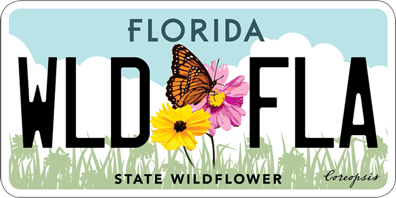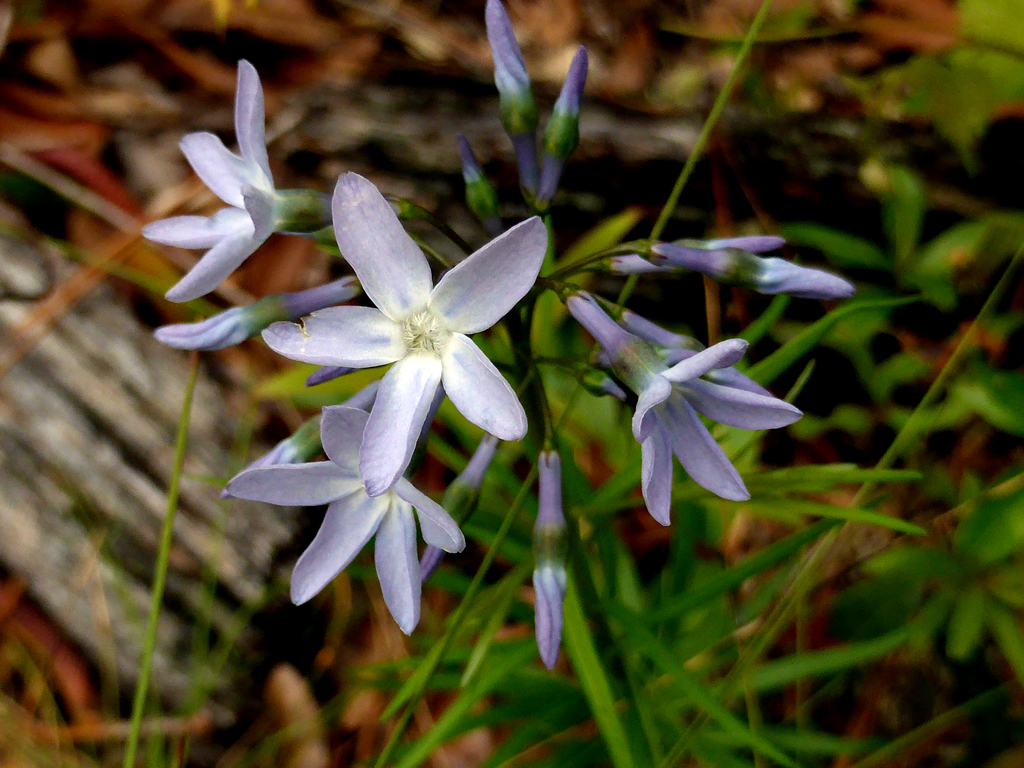Fringed bluestar
Pictured above: Fringed bluestar (Amsonia ciliata) by Eleanor Dietrich. Click on terms for botanical definitions. View post as a PDF.
Fringed bluestar (Amsonia ciliata) occurs naturally in pine flatwoods, sandhills and scrub throughout west Central Florida and North Florida. It blooms spring through fall, attracting a variety of pollinators, especially butterflies. Despite being in the same family as milkweed, the plant is not a known larval host for Monarchs or other butterflies that use milkweed as a host plant.
Its flowers are whitish-blue and star-shaped with a slender floral tube that opens into five petal-like lobes. Flowers are born in loose terminal panicles. Leaves are shiny, linear (almost pine- or grass-like), sessile and alternately arranged. They are bright green but turn orange or yellow in the fall. Stems emerge from a thick underground tuber. When broken, the stems release a milky sap. Both new leaves and stems are covered in tiny hairs. Seeds are born in narrow, erect follicles that dry and split open as the fruit matures. Follicles generally appear in pairs.
The genus Amsonia is an homage to English physician John Amson, a friend of British botanist John Clayton. The species epithet ciliata is from the Latin cilium or “eyelash,” and refers to the cilia or tiny hairs found on young leaves and stems.
Family: Apocynaceae (Dogbane family)
Native range: Panhandle, north and west central peninsula
To see where natural populations of Fringed bluestar have been vouchered, visit florida.plantatlas.usf.edu.
Hardiness: Zones 8A–9B
Lifespan: Perennial
Soil: Dry well-drained, sandy loam, or calcareous soils
Exposure: Full sun to light shade
Growth habit: up to 2′ tall
Propagation: Division, seed
Garden tips: Fringed bluestar’s delicate flowers, interesting foliage and fall color make it a nice addition to wildflower gardens in dry, sunny landscapes. Once established, it requires little maintenance. The plant is deciduous and will die back in the winter.
Fringed bluestar plants are rarely commercially available, but some nurseries that specialize in Florida native plants may occasionally carry them. Visit www.PlantRealFlorida.org to find a nursery in your area.

